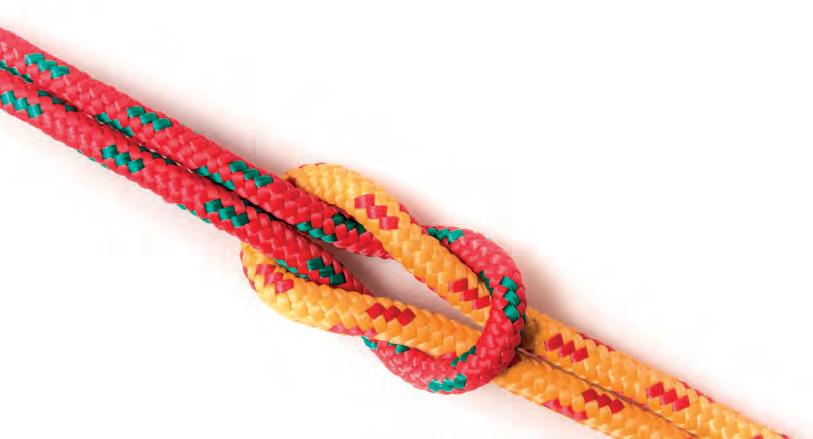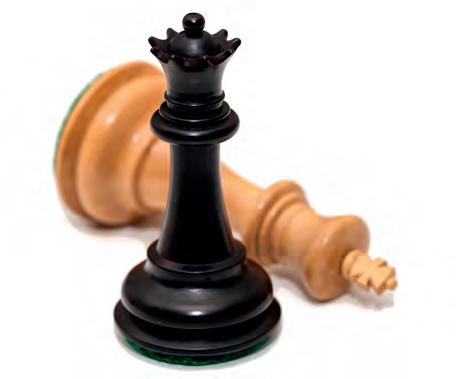
8 minute read
Youth Groups In Action
The range of youth organisations available to the children of Sussex is vast and covers a multitude of interests so we asked Robert Veitch to offer some thoughts on a few of them
Youth Clubs
There’s often far more going on at a youth club than those passing by might realise and these agents for social change sometimes miss out on the credit they deserve
Being a 21st century cub is primarily about having fun while learning a few essential life skills for children aged 8 – 10½
In 1960 a government report outlined a need for activities outside of school to be provided by local authorities. This led to the creation of youth centres and youth workers across the country to be available to all who need them.
Youth clubs offer a vast range of activities and aim to empower young people to be the best they can be through fun activities – any child attending is almost certain to find something to learn and to enjoy that they can take with them into adulthood.
Whether it’s a fishing trip, time on a climbing wall, team-building games, crafts or cooking, there are many things to learn and enjoy, things that counter that teenage refrain repeated through the decades, ‘There’s nothing to do around here.’
Outreach work for youths in challenging situations or from challenging backgrounds can also take place. The youth club can be an agent for social change, empowering young people to make positive decisions and make a difference in their lives and the lives of others.
The charities UK Youth and Sussex Clubs for Young People help facilitate youth clubs across the county. l www.sussexcyp.org.uk www.ukyouth.org
Cubs

Cub Scouts is the most popular section of Scouting with over 8,100 packs nationwide. It used to be the entry level into Scouting, but these days Beavers, for children aged 6-8 is the first port of call.
A Cub Scout leader is known as Akela, a name taken from Rudyard Kipling’s The Jungle Book and in line with the theme helpers follow in line with names like Bagheera, Baloo and Rikki.
Cubs are bonded in sixes with a Sixer as leader and a Seconder to help. They are usually two of the older boys. The Sixer has responsibility and shows leadership, helping those under his command to learn the way. Long before peer-to-peer learning was a phrase the Cubs were on the case.
Sure, learning knots still takes place, but so do camps, cooking, badges, wide games, fires and a whole host of practical skills that former Cubs might find more useful further down the line, than their attempts to learn algebra while staring out of a stuffy classroom window. 21st century Cubs can take activity badges in Backwoods Cooking, Astronomer, Digital Citizen and Environmental Conservation among other skills and challenges.
One issue affecting many Cub packs is a lack of adult involvement. Cubs isn’t just for children, Cubs can create a beneficial learning environment for the adults as well; be it planning, childcare, first aid, leadership, legislation and of course, a few knots.
And I can still do a reef knot with my eyes closed, so there! l www.scouts.org.uk/cubs





Whole School Open Morning Whole School Open Morning Saturday 25 September 2021 Sixth Form Open Evening Sixth Form Open Evening Thursday 7 October 2021 Nursery Prep Senior Sixth Form Lingfield College is a vibrant and successful co-educational day school for ages 2-18. A happy school with inspirational teaching, leading pastoral care and a rich and diverse extracurricular programme. 40 acres of fields and woodlands in Surrey Specialist teaching with an individual approach Excellent A level & GCSE results


Rated EXCELLENT in all areas. ISI 2017
Bursaries, Scholarships and Awards available


Guides

The origins of Chess are Indian and Persian; today it is a board game that can be played by everyone from granddaughter to Grandmaster
Where Cubs and Scouts are mixed, Guides is solely for girls aged 1014, offering life relevant skills, friendships and plenty of fun along the way
Chess is a game of strategy that can be played by anyone who has the enthusiasm to spend the time it takes to get to grips with the rules. After that, tactics and styles of play can become increasingly complex.
A chessboard has 64 squares, set in a grid of 8 ranks x 8 files. Each player starts with 16 pieces consisting of 8 pawns, 2 rooks, 2 knights, 2 bishops, 1 queen and a king. The aim is to capture your opponent’s king. Chess has many educative qualities, exercising both sides of the brain and promoting neural connections. It improves problem-solving skills, can raise IQ and improve memory function. It’s also fun.
Whether it’s an enjoyable step up from draughts, or a civilised war across a board in the most polite of settings is up to the players and the level they play.
There are Chess clubs in East Grinstead, Brighton & Hove, Worthing, Bognor & Arun, Horsham, and Hastings & St. Leonards. Junior players can receive coaching to improve their play while serious players can become involved in leagues.
The 1972 World Chess Championship between the Soviet, Boris Spassky, and the American, Bobby Fischer, in Iceland, was tagged ‘Match of the Century’ and had more than a whiff of Cold War atmosphere about it.
No Brit has ever been World Chess Champion, but of course, she or he might be living under your roof, just needing a nudge to make the first move. l www.sussexjuniorchess.org

Girlguiding is the leading charity for girls and young women in the UK, with nearly a third of a million members. They’re active in every part of the UK with more than 25,000 groups meeting weekly, powered by over 80,000 volunteers.
Worldwide, there are more than 10 million girls and young women from 152 countries. Guides operate in units run by an adult unit leader. Units are made up of patrols containing 4-8 guides, run by a patrol leader and patrol seconder.
Guides offer the chance for girls to learn a multitude of skills, unearth hidden talents, develop self-confidence, make life-long friendships, develop leadership skills, teamwork and of course to have fun. There are six theme awards; be well, express myself, know myself, have adventure, take actions and skills for my future. The bright blues and reds of 21st century hoodies and polo shirts have replaced those more severe looking blue blouses, skirts and hats of yesteryear. But some things remain and badges are one of them. Your daughter can choose from 93 including Conscious Consumer, Geocaching, First Aid, Human Rights and the Duke of Edinburgh’s Award.
World Thinking Day takes place annually on the 22nd February, and asks Guides to think of each other and to consider issues relevant to them as well as around the world.
If the Guides was good enough to teach the Queen a few things, they’re good enough for every girl. l www.ggsussexeast.org.uk www.girlguidingsussexwest.org.uk


Did recent Olympic water sports excite your child? Have they got too much energy and an inquisitive nature? The Sea Scouts may be the organisation for them
There’s something life enhancing about inhaling an airborne essence of salt, of a marine environment thick with nervous anticipation as the rigging on a dinghy mast flaps frenetically in the coastal breeze. Such is life on the ocean wave, or for Sea Scouts – inland coastal waters and estuaries.
The first Sea Scout camp took place in 1909, in Hampshire, and activities then as now were water based and


involved boating, canoeing, kayaking, motorboats, sailing and navigation, in addition to regular scouting activities In Robert Baden-Powell’s book
Scouting For Boys he declared that a Scout should be able to bring a boat alongside another boat, pier, or jetty. Although it was his lesser known brother, Warington, who had a more fundamental involvement in the early days of the Sea Scouts
But this particular skill and many others are not just taught for fun. Educating young Sea Scouts about boats, navigation, safety, responsibility and teamwork are practical lessons for life.
As with all Scouts, personal development and a positive contribution to society underpin the entire organisation, running through it like a stick of seaside rock. A Sea Scout is recruited at 10½ years old, and at 14 can become a Sea Explorer through to 18 years of age. Sea Scout troops are scattered along the Sussex coast. l www.scouts.org.uk
Senior School & Sixth Form
Be inspired Be brilliant Be you











